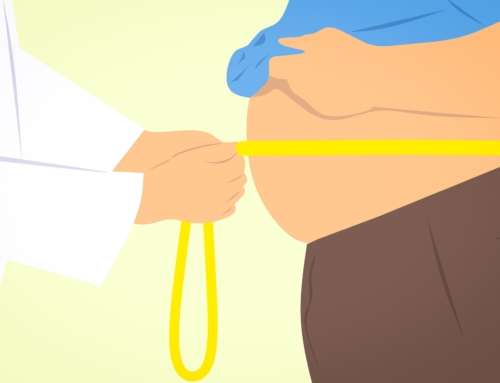Sexual Health Week started years ago as a way to raise awareness about sexually transmitted diseases but has gained attention in that everyone deserves access to sexual health and wellbeing information. Talking about sexual issues is difficult for most people and women especially don’t realize that many other people are having the same issues they are. It’s important to bring these issues up to your physician because many times there is help available. One of the most common issues I hear is decreased libido. In men, decreased libido and erectile dysfunction is usually fairly straightforward. Evaluate the hormones (testosterone, estradiol, DHEA), make sure there are no co-morbidities like high blood pressure or high blood sugar and evaluate for side-effects of medications (for example, antidepressants make it harder to have an orgasm in most men and women for that matter). Women’s libido issues are usually more complex. I love the analogy of men’s libido is often like the single button that says on/off and women’s is like the cockpit of an airplane with a multitude of switches that have to be turned on or off in succession to get lift off. Most women don’t even understand their own switches which makes it even harder for their partners to help. READ ON as we discuss some of the areas to address regarding low libido in a woman…
- Lack of reward: I recently saw a meme on Instagram by Emily_Athena that said “if you have low libido the first question to ask yourself is- Was the sex worth having in the first place?” Doesn’t that make you stop and think? If sex isn’t enjoyable, routine and has no reward it gets harder and harder to want to have it. This doesn’t mean you don’t love your partner it’s just the reality that it gets dropped to the horrible “to do” list rather than the want to list. This seemingly small issue is a mountain to be unearthed in most women. Here are the questions to ask yourself…
- Can you have an orgasm at all – not just with your partner but perhaps with self-stimulation? Reasons for this can be physical or emotional and obviously the treatment for these are very different. Often it is a combination of these which can be difficult to navigate. If you have insecurities over sexual health then perhaps starting with a sex therapist can help you evaluate these issues. If you are not comfortable with your own body it will be very difficult to be comfortable with someone else. I am not just talking about sex but this is with any type of intimacy. If you physically have difficulty with an orgasm then do the following:
- a. Evaluate for any medical conditions that may contribute like high blood pressure, diabetes, and thyroid issues.
- b. Take a look at any medications you are taking. Antidepressants, high blood pressure medications as well as birth control pills have all been implicated in decreased ability to orgasm.
- c. Evaluate your reproductive hormones: estrogen, testosterone, DHEA. While replacing testosterone can help in many situations keep in mind, if you are needing high doses then there is an underlying issue that you have not addressed. Women just don’t have high levels of testosterone routinely.
- d. Evaluate any underlying emotional issues. If you don’t feel loved or safe with your partner, intimacy of any type will be difficult.
- Can you have an orgasm at all – not just with your partner but perhaps with self-stimulation? Reasons for this can be physical or emotional and obviously the treatment for these are very different. Often it is a combination of these which can be difficult to navigate. If you have insecurities over sexual health then perhaps starting with a sex therapist can help you evaluate these issues. If you are not comfortable with your own body it will be very difficult to be comfortable with someone else. I am not just talking about sex but this is with any type of intimacy. If you physically have difficulty with an orgasm then do the following:
If you have addressed these issues with no results then consider a procedure like the Cliovana which is an ultrasound treatment that can help intensify orgasms and ability to have one.
- Is sex painful? If the answer is yes, there are a multitude of things you can do to help alleviate this problem. Vaginal estrogen (my preference is estriol) can be very helpful even in women who have had breast cancer (in very low doses). Hyaluronic acid comes in many different OTC preparations so do a quick google search and try some of these products. Consistency is key here. If these don’t help then consider procedures like the Mona Lisa which can help internally and the Cliovana which can help with lubrication. Speaking of lubrication, a really good one is key. Often you need all of these so don’t stop trying different combinations. Personally, I think the menopause vaginal canal can end up like the Sahara desert that is dry and cracked. Just because you add some temporary lube is usually not enough to smooth out that surface so using some estrogen/hyaluronic acid and considering one of the procedures can be helpful.
- Is sex interesting? After you have been with someone a long time, sex can become routine. It takes commitment and courage to change things up. When I did my facebook series of reimaging date night on we discussed how intellectual stimulation, how you dress and introducing ancillary aides like vibrators can really help. Our safe, sexy and spicy cards are one way to get the conversation started. Good news, our safe, sexy, spicy cards are now available for instant download on Etsy! Just click here. You can also pick up a set of cards available at our office on sale this week for sexual health awareness week (while supplies last).
If you are having intimacy problems with your partner, don’t ignore it. Have that difficult conversation and work together on finding a solution!
To your health,
Laura









